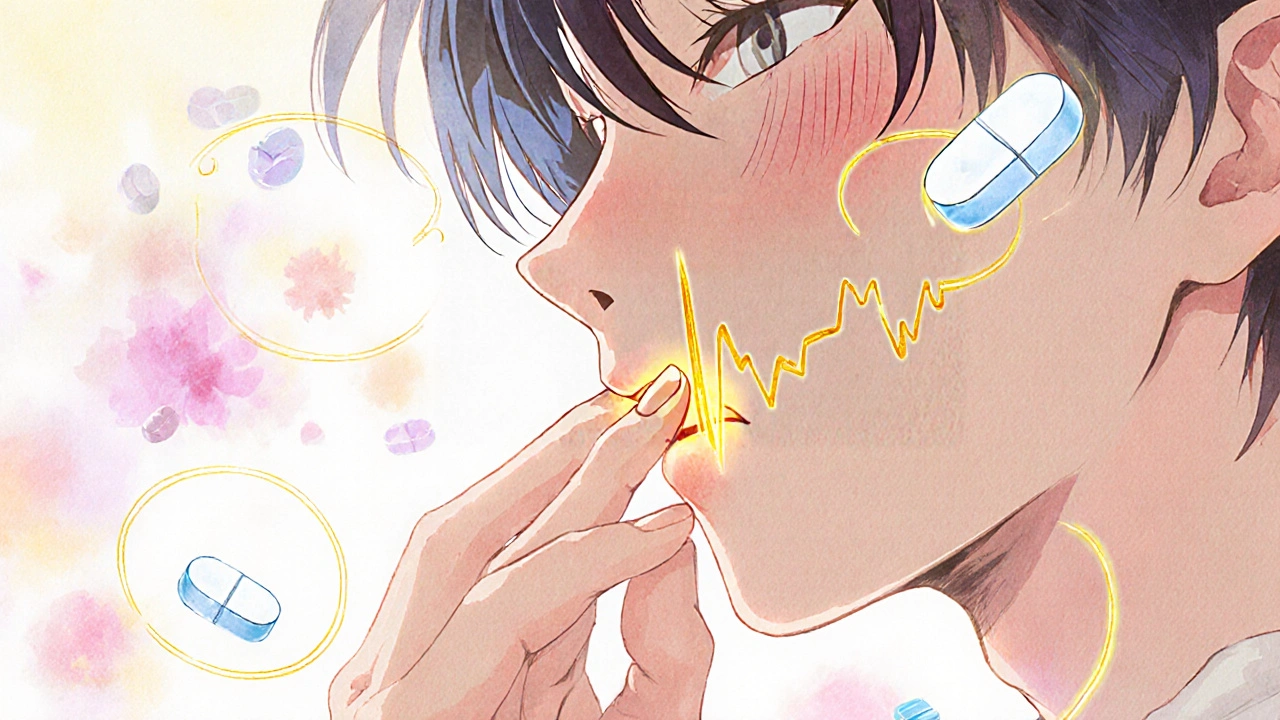Acyclovir: What It Is, How It Works, and What You Need to Know
When you get a cold sore or a flare-up of genital herpes, acyclovir, a synthetic antiviral drug that stops herpes viruses from multiplying. Also known as Zovirax, it’s one of the most trusted tools doctors reach for when viral outbreaks hit. It doesn’t cure herpes—no drug does—but it cuts the pain, shrinks the sores, and shortens outbreaks by days. That’s why millions turn to it every year, whether they’re dealing with a first outbreak or managing recurring symptoms.
Acyclovir works by targeting the virus’s DNA-building process. Herpes viruses need to copy their genetic material to spread, and acyclovir tricks the virus into using it instead of the real building blocks. The result? The virus stalls, can’t replicate, and the immune system clears the rest. It’s not a magic bullet, but it’s precise. Unlike broad-spectrum antibiotics, it doesn’t mess with your good bacteria. It’s focused. And because of that, it’s safe for long-term use in people who get frequent outbreaks.
It’s not just for cold sores. Acyclovir is also used for shingles, chickenpox, and even serious infections in people with weak immune systems. It comes as a pill, a cream, or an IV—depending on how bad things are. The cream works best if you catch it early, right when you feel that tingling. The pills? They’re for bigger outbreaks or when the virus is spreading inside the body. And yes, it’s often paired with other treatments. For example, some patients use it alongside pain relievers or topical numbing agents to get through the worst days.
People often ask if acyclovir is the only option. It’s not. Valacyclovir and famciclovir are similar drugs that work the same way but last longer in the body, so you take fewer pills. But acyclovir is cheaper, has been around longer, and has more real-world data backing it. For many, it’s still the go-to. It’s also the one most likely to be covered by insurance, even on generic form.
What you won’t find in every guide is how it fits into daily life. If you’re on suppressive therapy—taking it daily to prevent outbreaks—you’ll notice fewer flare-ups, but you still need to avoid triggers: stress, sun, illness, or even tight clothing. It’s not just about the drug. It’s about how you live with the virus. And that’s where the real help comes in—from understanding when to start treatment, how to spot resistance, and when to ask for a different option.
Below, you’ll find real guides from people who’ve used acyclovir—some for the first time, others for years. They share what worked, what didn’t, and how they managed side effects like nausea or headaches. You’ll see how it stacks up against other antivirals, how it interacts with other meds, and what to watch for if you’re pregnant or have kidney issues. This isn’t theory. It’s what people actually did, and what helped them get back to normal.
Acyclovir for Herpes Labialis: How to Reduce Pain and Speed Up Healing
Acyclovir reduces cold sore pain and heals herpes labialis faster when taken at the first sign of tingling. Learn how it works, dosing tips, side effects, and how it compares to other treatments.
READ MORE
